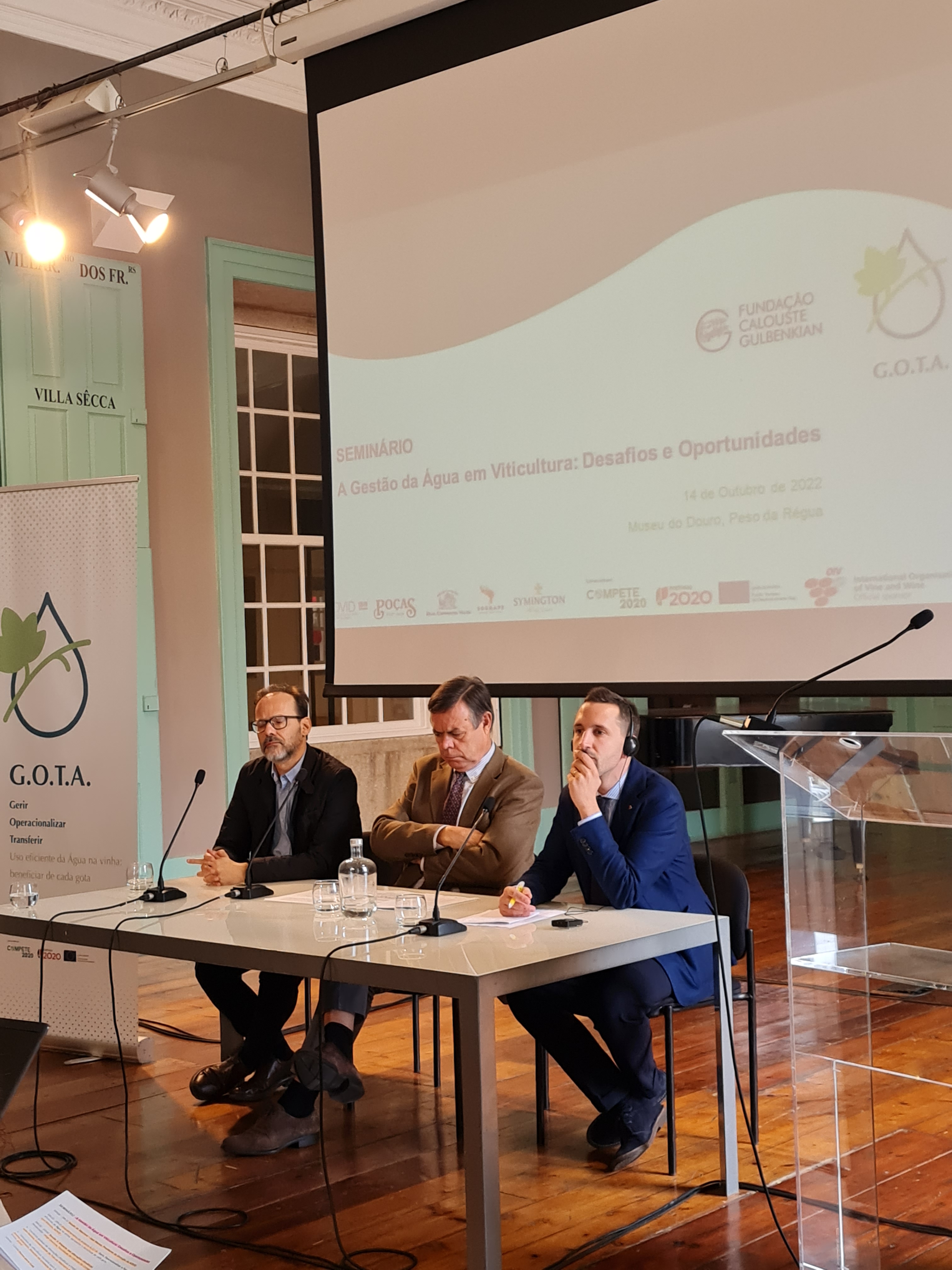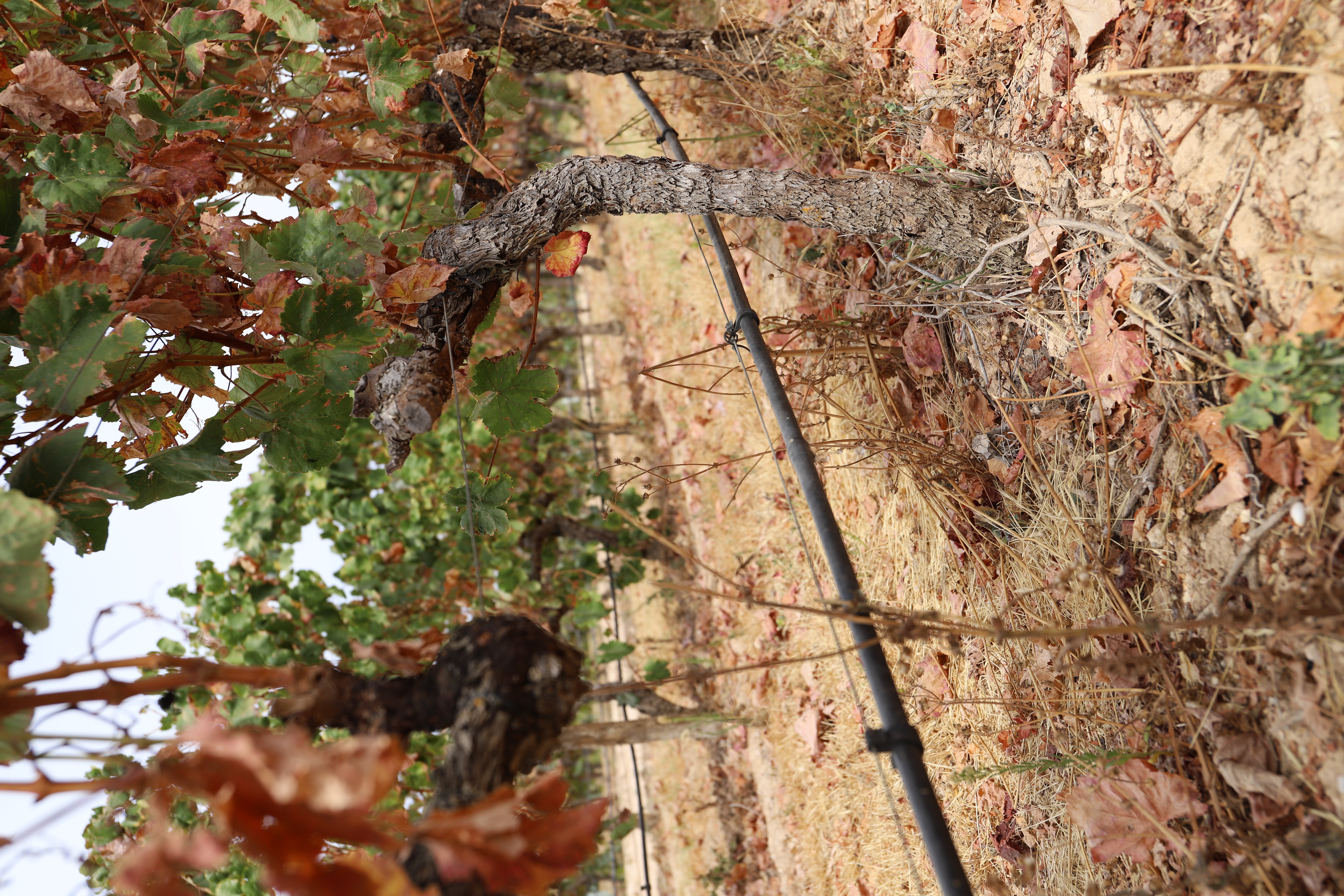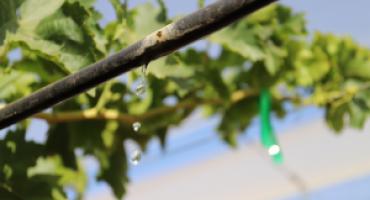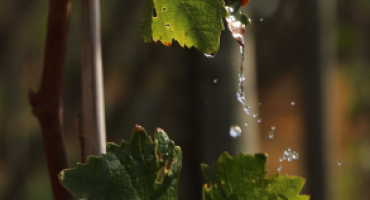Under the patronage of the OIV, the seminar "Water Management in Viticulture: Challenges and Opportunities" gathered several experts to discuss about the increasing drought.


The OIV has participated in the seminar "Water Management in Viticulture: Challenges and Opportunities", held in Peso de Régua (Portugal) last 14th of October and organised by ADVID, the Vine and Wine cluster in Douro region, in the framework of the national GOTA project concerning the sustainable use of water. About 120 people have attended the event, mainly vine-growers, professionals, entrepreneurs of the vitivinicultural sector and several OIV experts.
The G.O.T.A project works to use water efficiently in the vineyard.
Climate change in the Douro region is increasing temperatures and decreasing rainfall like in many regions across the globe. In this view, the OIV Head of the Viticulture Unit, Enrico Battiston, presented the organisation’s recommendations and the Expertise Collective Document developed to delineate a comprehensive response to the water-sustainability challenges in each geographic domain and to highlight the key and universally relevant practices in viticulture.


The seminar then welcomed the contributions from Prof Alain Deloire (Montpellier SupAgro, France) for the significant implications on the vine physiology, followed by the studies concerning the adaptation of viticulture in Spain and Israel that were respectively presented by Prof Luis Gonzaga Santesteban (University of Navarra) and Prof Aaron Fait (University of Negev).
Severe drought caused the loss of 20% of the yields in 2022 in the Douro Wine Region.
Along a first-round table, several representants of the major wine estates of Douro region exchanged about their actions and proposals to face the increasing dryness, which in 2022 caused the loss of approximately 20% of yield in Douro Region. In the second-round table, the issues related to the water storage, availability and supply for irrigation were deeply discussed between public administrators and representants of the water management companies, highlighting that the waste of water resources due to technical losses along the infrastructures represents a preeminent critical aspect to be addressed urgently.

